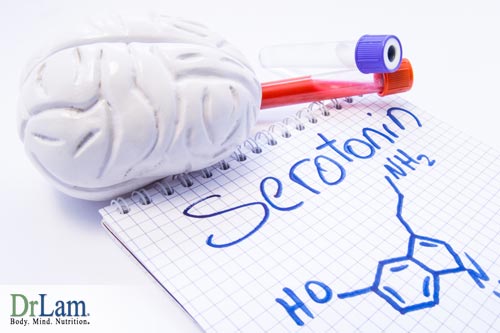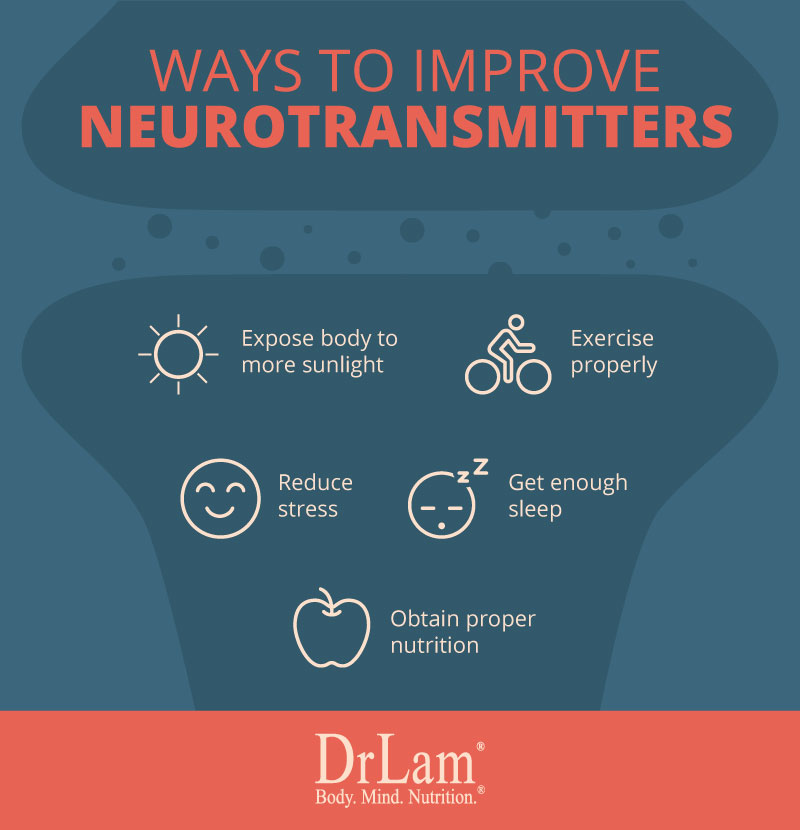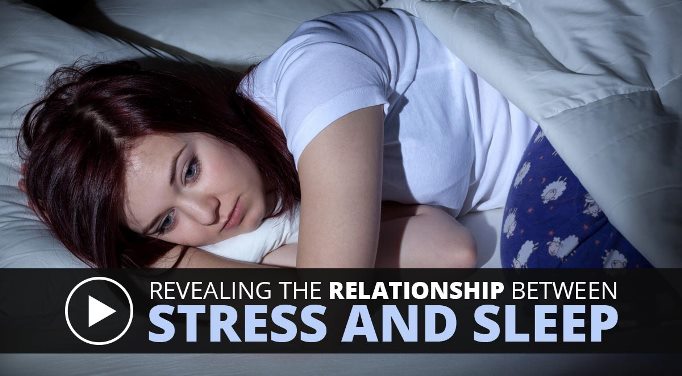
 There are many different things that happen during sleep. Some of them still remain a mystery. Several studies have been undertaken to ascertain the precise stimuli that cause different sleep patterns. There is ample evidence that excitatory and inhibitory neurotransmitters have an effect on what goes on when we are awake and when we close our eyes at night.
There are many different things that happen during sleep. Some of them still remain a mystery. Several studies have been undertaken to ascertain the precise stimuli that cause different sleep patterns. There is ample evidence that excitatory and inhibitory neurotransmitters have an effect on what goes on when we are awake and when we close our eyes at night.
Neurotransmitters are the chemicals that the brain uses to communicate information throughout the brain and body. They are an essential aspect of a properly functioning body. They communicate everything from when your heart should beat to how you sleep. There are many variables that influence the level of neurotransmitters in your brain. To a certain extent, you have the ability to influence those levels. Influencing two types of neurotransmitters, excitatory and inhibitory, can affect how you sleep.
The basic function of excitatory neurotransmitters is not necessarily to excite but to stimulate. Excitatory neurotransmitters consist mainly of a core group that includes epinephrine, norepinephrine, and dopamine.
These stimulating neurotransmitters are essential for everyone to function normally. When their levels are either elevated or insufficient, a chemical imbalance occurs, and there can be adverse effects.
Dopamine is associated with focus and motivation. This means that levels above normal can result in hyperactivity, and levels below normal can lead to lethargy. In turn, serotonin, which is the counterpart to norepinephrine, has a direct effect on mood and emotions. Serotonin helps to balance mood because it is an inhibitory neurotransmitter that offsets the excitatory dopamine and norepinephrine. The proper balance is essential to allow us to operate in a productive way.
Norepinephrine is directly linked to the fight-or-flight response of the body and is affected by the circadian rhythm. In the middle of the night, its levels are supposed to decrease to allow for calm and peaceful sleep. One hormone that increases norepinephrine in the body is cortisol. This can happen at the wrong time. Cortisol is released by the adrenal glands when the body is under stress and when an individual is experiencing anxiety. In this case, instead of a normal period of low cortisol at night, high cortisol levels during the sleep cycle can wreak havoc on sleeping patterns.
In a healthy person, cortisol levels fluctuate throughout the day and night. They are normally at their highest during the mornings and then again in the evening. They are lowest during REM sleep so that the body can enter deep sleep. When stress has disrupted a normal cortisol release cycle, it can cause excessive excitatory neurotransmitters to be released when they normally wouldn’t be, resulting in vivid dreams and nightmares. In severe cases, it can cause a person to wake up and become unable to fall back asleep, resulting in sleep maintenance insomnia. Heart palpitations or symptoms of hypoglycemia can also occur when severe.
However, there is always a natural way that the body balances itself. That is why there are both excitatory and inhibitory neurotransmitters.
 Serotonin is an inhibitory neurotransmitter that has a major role in balancing signals in the cerebral cortex to repress wakefulness. The body’s self-regulation process requires that neurotransmitter levels be kept within certain tolerances to function normally.
Serotonin is an inhibitory neurotransmitter that has a major role in balancing signals in the cerebral cortex to repress wakefulness. The body’s self-regulation process requires that neurotransmitter levels be kept within certain tolerances to function normally.
Some people, with high levels of anxiety and low levels of serotonin, suffer from an inability to obtain restful sleep. Other people have predominantly excitatory, rather than inhibitory, neurotransmitters, which brings on effects like anxiety, irritability, panic attacks, feeling wired, and being overexcited. On the flip side, there are those with low levels of excitatory and high levels of inhibitory neurotransmitters, which can result in continual states of fatigue, sleepiness, and low mood.
There are ways to manipulate your levels of both excitatory and inhibitory neurotransmitters. You can try certain habits and, in some situations, the introduction of medications.
However, there is no exact measure of what “normal” is in the context of excitatory and inhibitory neurotransmitters. Each individual has naturally varying levels. Some people are predisposed to having either a deficit or an over-abundance of certain neurotransmitters. This can result in a wide variety of issues, including everything from anxiety to lack of motivation.
There are several ways to stabilize levels of excitatory and inhibitory neurotransmitters.
Increasing levels of serotonin can help you relax and wind down after a stressful day. The first way to increase serotonin synthesis is to expose your body to more natural sunlight. Because many of us work inside of office buildings and don’t get out much, this can be a common problem, especially through winter months. To combat this problem, either get outside in the sun more or acquire a lamp for seasonal affective disorder.
Aside from getting out into the sunlight, exercise is another helpful habit that can get both your excitatory and inhibitory neurotransmitters back in balance. Exercise can help boost both serotonin and dopamine levels.
There are reasons for both people with anxiety and people with lethargy to participate in exercise. The key is to know the right kind, intensity, and frequency. On one hand, exercise can help you relax. On the other hand, it also can lead to excessive epinephrine.
It may seem counterintuitive to exercise with an aim to gain more focus, motivation, and energy because it requires energy to participate in. Such is the mystery of dopamine production and uptake though.
However, for those with adrenal fatigue or other conditions where the body is in a weakened state, exercise can cause more harm than good. Exercise can be calming for some by ‘burning off’ excessive excitatory neurotransmitters like norepinephrine. However, it can also cause a drain on the body’s nutritional reserve and trigger adrenal crashes. Some people feel good during exercise but crash later. This is a reflection of a dysregulated autonomic nervous system. It’s best to undertake physical exercise cautiously under these circumstances.
If you are concerned about whether or not you are healthy enough to engage in any activity, please contact a clinical professional for advice beforehand.
 The NeuroEndoMetabolic (NEM) Stress Response affects large parts of the body. It describes the pathways the signals of stress travel through, and how they are eventually converted into physical action. During the onset of stressors, at the base of the brain, the hypothalamus sends signals to the pituitary gland, at which point the adrenal glands are instructed to take action. Cortisol is released, digestion and nutrient uptake is halted, and blood sugar is increased so that an immediate energy source is available. During stress, your body can lose much of its ability to detoxify, leaving the body in a highly toxic state
The NeuroEndoMetabolic (NEM) Stress Response affects large parts of the body. It describes the pathways the signals of stress travel through, and how they are eventually converted into physical action. During the onset of stressors, at the base of the brain, the hypothalamus sends signals to the pituitary gland, at which point the adrenal glands are instructed to take action. Cortisol is released, digestion and nutrient uptake is halted, and blood sugar is increased so that an immediate energy source is available. During stress, your body can lose much of its ability to detoxify, leaving the body in a highly toxic state
The NEM response works great when we are engaged in high-intensity situations, but, when it is brought on by common day to day problems, it can be a huge headache. Stress causes high cortisol levels, which can have a serious effect on sleep because of the excitatory neurotransmitter norepinephrine. If you are going through a stressful period and are unable to reach a state of relaxation because of an imbalance between excitatory and inhibitory neurotransmitters, there can be serious long-term consequences.
These neurotransmitters have a direct relationship to the neuro affect aspect of the NEM response. This, in some cases, leads to stress intolerance and even panic attacks.
When the body is in a continual state of stress, and the NEM stress response is working overtime, it can lead to a condition known as Adrenal Fatigue Syndrome (AFS). This happens when the adrenal cortex is called upon to produce more cortisol than it is able to. The adrenal glands cannot keep up with this continual demand. In turn, they are unable to regulate the NEM response as they should. This results in a plethora of compounding issues that can be devastating and lead to severe AFS.
There is a strong relationship between neurotransmitter imbalances and AFS because they work together to control natural body cycles. It is also necessary for the sleep cycle to be operating in a healthy manner to ensure well-being and avoid AFS. We spend approximately one-third of our lives sleeping, which points to its importance to overall health. The sleep cycle also directly affects nutritional absorption and immunological function. Any disturbances to this process can quickly cause adverse effects.

When you don’t get enough sleep and feel exhausted, weariness is not the only issue. Sleep deprivation can cause numerous health issues related to AFS. Improper gut health can quickly become a problem when you are constantly exhausted. Nutrient uptake is an important variable when considering how you feel. If you aren’t able to obtain proper nutrition because of sleep deprivation, your body can suffer immunological weakness and inflammation. These can become serious conditions. High levels of inflammation are linked to many chronic issues, from the mild to severe, including cancer.
There could be something missing from your daily habits and patterns that is causing increased neurotransmitter imbalances. Moreover, there could be something present that should be confronted, such as stress or poor diet, that is contributing to low energy levels and lack of sleep.
 The main cause of these issues tends to be stress. It’s not just the feeling that you get when you’re stressed that is the problem. Oftentimes, it is the unseen chemical reactions that cause the most damage. Take a good look at what is causing you stress and consider how often your body is entering a fight-or-flight state. These continual cortisol spikes need to be observed and corrected where possible. Exercise can also be a great way to take your mind off of stressful situations while boosting dopamine and serotonin activity.
The main cause of these issues tends to be stress. It’s not just the feeling that you get when you’re stressed that is the problem. Oftentimes, it is the unseen chemical reactions that cause the most damage. Take a good look at what is causing you stress and consider how often your body is entering a fight-or-flight state. These continual cortisol spikes need to be observed and corrected where possible. Exercise can also be a great way to take your mind off of stressful situations while boosting dopamine and serotonin activity.
In extreme cases of AFS, it is not always advisable to participate in strenuous activity, as the body can become dangerously weak. This stage is known as adrenal exhaustion. If you believe you have entered this stage of AFS, you should contact your doctor immediately to see what can be done. A clinical professional may advise you to use dietary supplementation or even suggest pharmaceutical approaches.
This article is meant to help people become aware of what is taking place in their bodies. However, everyone is in a different situation with their own strengths and limitations. It’s important for you to make your own decisions and consider your individual body when participating in your AFS recovery. In time, you can get back to experiencing good sleep and overall health.
© Copyright 2017 Michael Lam, M.D. All Rights Reserved.
Not the only cause, but excitatory and inhibitory neurotransmitters play a role in sleep no matter what. There can be many different causes of insomnia, and you can’t definitely say that it is being caused by a neurotransmitter imbalance, but they are always involved.
There is a direct link between AFS and episodic cortisol spikes which negatively affect sleep. Because of this, there is a high likelihood that your body is producing high levels of norepinephrine, which can throw your excitatory and inhibitory neurotransmitters out of balance.

